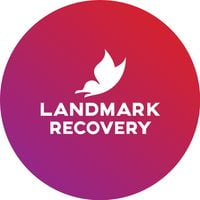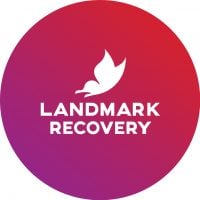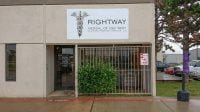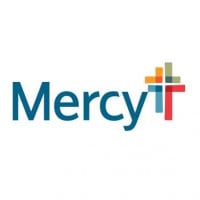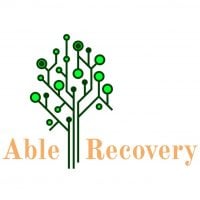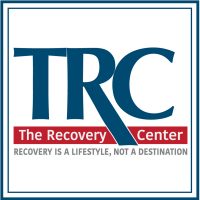Center for Positive Change
Drug Rehab Center in Yukon, Oklahoma
The Center for Positive Change in Yukon, Oklahoma offers comprehensive outpatient treatment and care programs for individuals struggling with addiction and substance abuse, emphasizing evidence-backed practices and therapies to promote long-term recovery and address the holistic needs of individuals and their families.
About Center for Positive Change in Oklahoma
Center for Positive Change in Yukon, Oklahoma provides comprehensive outpatient treatment and care programs for individuals suffering from addiction and/or substance abuse. The facility focuses on evidence-backed practices and therapies, such as cognitive behavioral therapy, peer support and dual diagnosis, to help people achieve long-term recovery. All services are designed to address the psychological, physical, spiritual, and social needs of the individual. Additionally, the center also provides a range of services to the family and loved ones of those struggling with addiction.
At Center for Positive Change, individuals can take part in an extensive range of addiction and substance abuse treatments. This includes both group and individual therapy sessions, where participants can learn coping skills and relapse prevention techniques. The center also provides education about addiction-related diseases, such as HIV/AIDS, Hepatitis C, and STIs, and how to protect against them. Furthermore, clients can attend specialized programs with topics ranging from stress management to anger management, as well as participate in sober recreational activities to increase motivation and morale.
Center for Positive Change is proud to be certified by the Oklahoma Department of Mental Health and Substance Abuse Services, making it an accredited provider of addiction treatment services. Furthermore, the facility has earned a number of awards from organizations such as the American Council for Accreditation of Drug and Alcohol Treatment Programs. Center for Positive Change also offers generous scholarships and grants to those in need, allowing them to receive treatment that they may have otherwise been unable to access.
Genders
Ages
Modality
Additional
Conditions and Issues Treated
Dual Diagnosis is a specific relationship between two or more disorders that have the same symptoms and can sometimes be treated together. This is used in the treatment planning process when dealing with drug addicts. Dual diagnosis can be viewed as a chronic medical condition that has comorbid psychiatric disorders.
Although addiction and a mental illness may have separate symptoms that are not easy to detect, they often go hand in hand. Many times, drug abuse is a direct result of the mental illness. In other words, treating the addiction will not resolve all of your issues. Unless you also treat the underlying mental illness, you will not be successful in achieving sobriety.
Levels of Care Offered
This center offers a variety of custom treatment tailored to individual recovery. Currently available are Dual-Diagnosis, Outpatient, with additional therapies available as listed below.
An outpatient treatment program is set up to help with alcohol or drug addiction, or a co-occurring disorder. The patient must attend the Oklahoma facility for their therapy and other programs but are able to return home each night. The frequency of mandatory attendance decreases after much of Center for Positive Change‘s program is complete.
Therapies & Programs
Individual Therapy is a critical component of addiction recovery. Therapists work with patients to identify the root of their addiction and figure out how to better handle the issues that led to them using drugs. Individual Therapy is the one-on-one session where people meet with their therapist. Individual therapy provides a safe space for people to open up and discuss personal and sensitive topics which they may not feel comfortable discussing in a group setting.
Couples therapy at Center for Positive Change focuses on addiction treatment for the addict and their spouse. The addict’s family, not just the addict, can benefit from this form of therapy. Couples therapy addresses communication problems, trust issues, lack of intimacy, and abuse in intimate relationships. Couples therapy can help rebuild trust between partners, which increases the chances for successful treatment and sustained recovery.
Intimate relationships can be damaged during addiction, and professional help may be necessary to rebuild the often destroyed trust and love. Couples therapy at Center for Positive Change helps couples improve communication and rebuild trust. Either or both partners will be helped by this treatment administered by professionals. This treatment can also help one or both partners if addiction is the problem.
Family therapy will also help families realize that the addiction is not their fault. For many years, people blamed themselves for an addict’s behavior and felt that they had done something wrong. This is not the case. Addiction is a disease, and it can strike anyone, even if their life seems fine from the outside. It can bring a lot of shame to a family when they have an addict in their midst, but if everyone is open and honest with each other, then they can help everyone stay in recovery.
Group Therapy is utilized by drug treatment centers like Center for Positive Change to provide the recovering drug addict with a platform to talk about their feelings and experiences. It also provides for an opportunity to learn from other addicts who have successfully overcome their addiction.
Group Therapy is employed in lectures, seminars, or discussion groups (the latter two are typically conducted as “therapy groups”). It is recommended that all group members be recovering addicts for this type of therapy to work (though it does not exclude others with lived experience).
Trauma therapy is a clinical process that helps individuals deal with mental stress often caused by traumatic events. It is generally done for children, teenage victims of sexual assault, and war veterans. The therapist helps the person identify, understand and work through the problem. This is done with the help of talking about it in group or one-on-one counseling sessions. Therapists use relaxation, role-playing, art, and music to help the person open up about what is bothering them.
Dialectical Behavior Therapy (DBT) is used by drug treatment centers across the United States to help drug addicts become sober. DBT combines traditional behavioral treatments with elements from DBT, including dialectics, distress tolerance, and interlocking issues. It is commonly used to treat Borderline Personality Disorder (BPD) along with substance abuse disorders. The four DBT modules are mindfulness, interpersonal effectiveness, emotion regulation, and distress tolerance.
Cognitive behavioral therapy is also a popular service for individuals living with addiction. This type of supportive treatment uses both one-on-one counseling and group sessions to teach addicts how to identify thoughts, behaviors and emotions that might increase their risk of relapse.
These professionals can help addicts develop coping skills for managing stress, improving self-esteem and overcoming triggers. They might also use behavioral therapy to help addicts learn how to avoid cravings and warning signs that could lead them back into addiction.
Therapy can be used as a step-down from inpatient treatment or as the primary method of overcoming an addiction. No matter which option is best for the addict, they will teach important emotional coping techniques, which can make it easier for addicts to get through the tough days.
Patient Experience
Experiential Therapy at Center for Positive Change
Experiential therapy is another form of treatment that helps addicts overcome their addiction. This type of service typically involves hands-on activities with the focus on physical experiences instead of emotions or beliefs.
Some examples include art therapy, equine therapy and music therapy. Each of these forms of experiential therapy can provide unique ways for addicts to channel their feelings and work through their demons. This type of therapy also allows addicts to develop meaningful emotional connections with others, which can prevent them from resorting to relapse as a coping mechanism.
Payment Options Accepted
For specific insurance or payment methods please contact us.
Is your insurance accepted?
Ask an expert, call (888) 674-0062
Additional Details
Specifics, location, and helpful extra information.
Yukon, Oklahoma 73099 Phone Number(405) 265-2800 Meta DetailsUpdated November 25, 2023
Staff Verified
Center for Positive Change Patient Reviews
There are no reviews yet. Be the first one to write one.
Yukon, Oklahoma Addiction Information
The state of Oklahoma ranks second in the United States of America for residents with substance abuse disorders. Since 2004 the state has continuously exceeded the national standard of substance abuse cases. The state spent more than $37 million to combat addiction by investing in quality drug and alcohol addiction treatment in 2017. An estimated 600 to 800 people are on waiting lists each day for inpatient addiction treatment.
Treatment in Nearby Cities
- Tecumseh, OK (49.2 mi.)
- Konawa, OK (67.7 mi.)
- Vinita, OK (166.4 mi.)
- Tonkawa, OK (86.5 mi.)
- Fairview, OK (67.5 mi.)
Centers near Center for Positive Change
The facility name, logo and brand are the property and registered trademarks of Center for Positive Change, and are being used for identification and informational purposes only. Use of these names, logos and brands shall not imply endorsement. RehabNow.org is not affiliated with or sponsored by Center for Positive Change.

